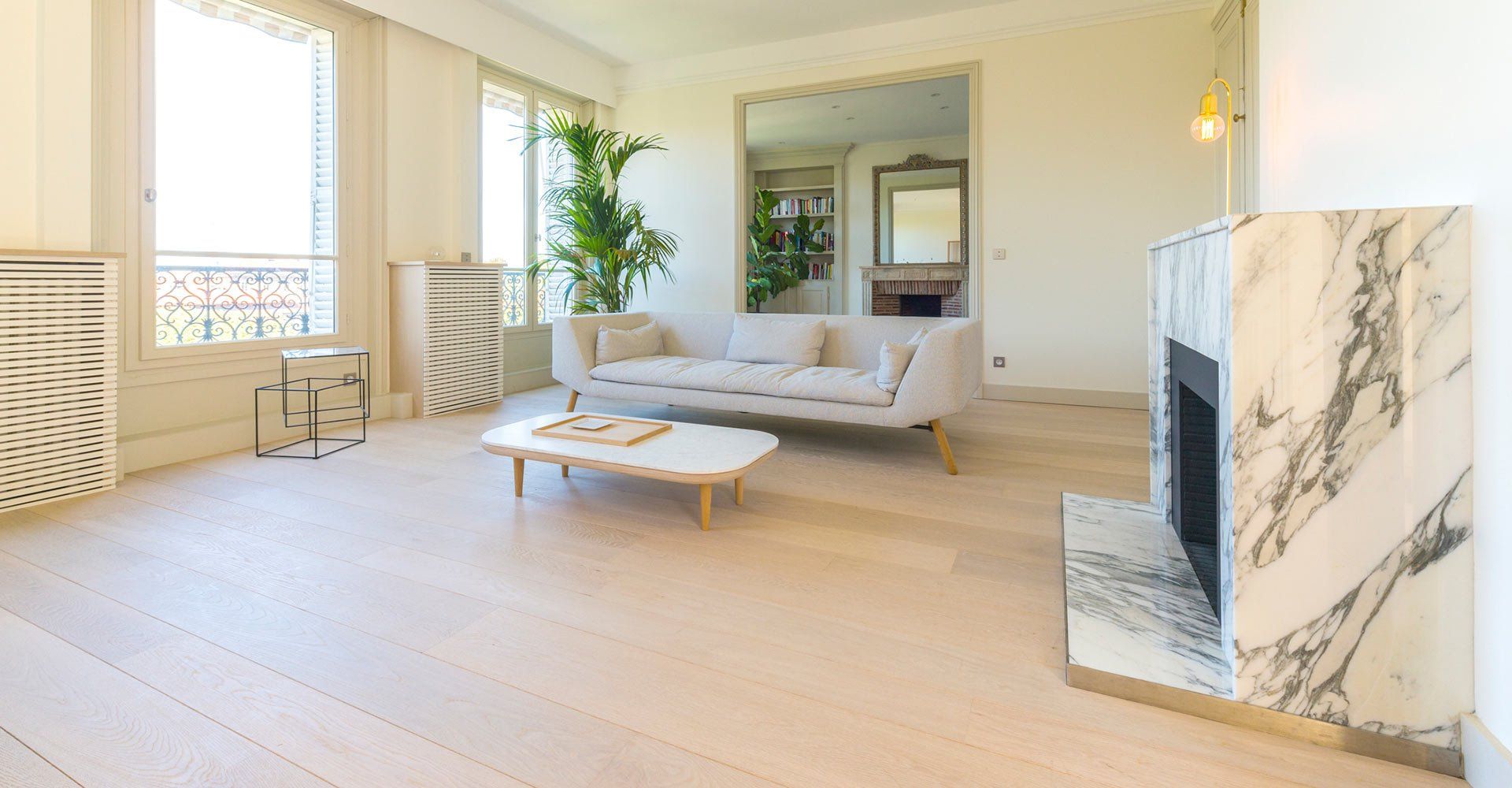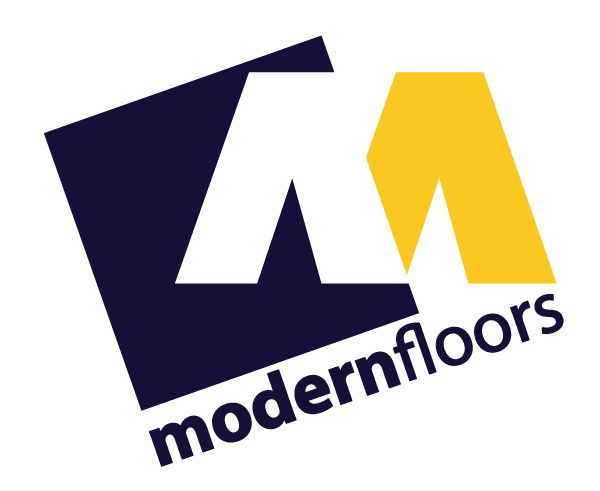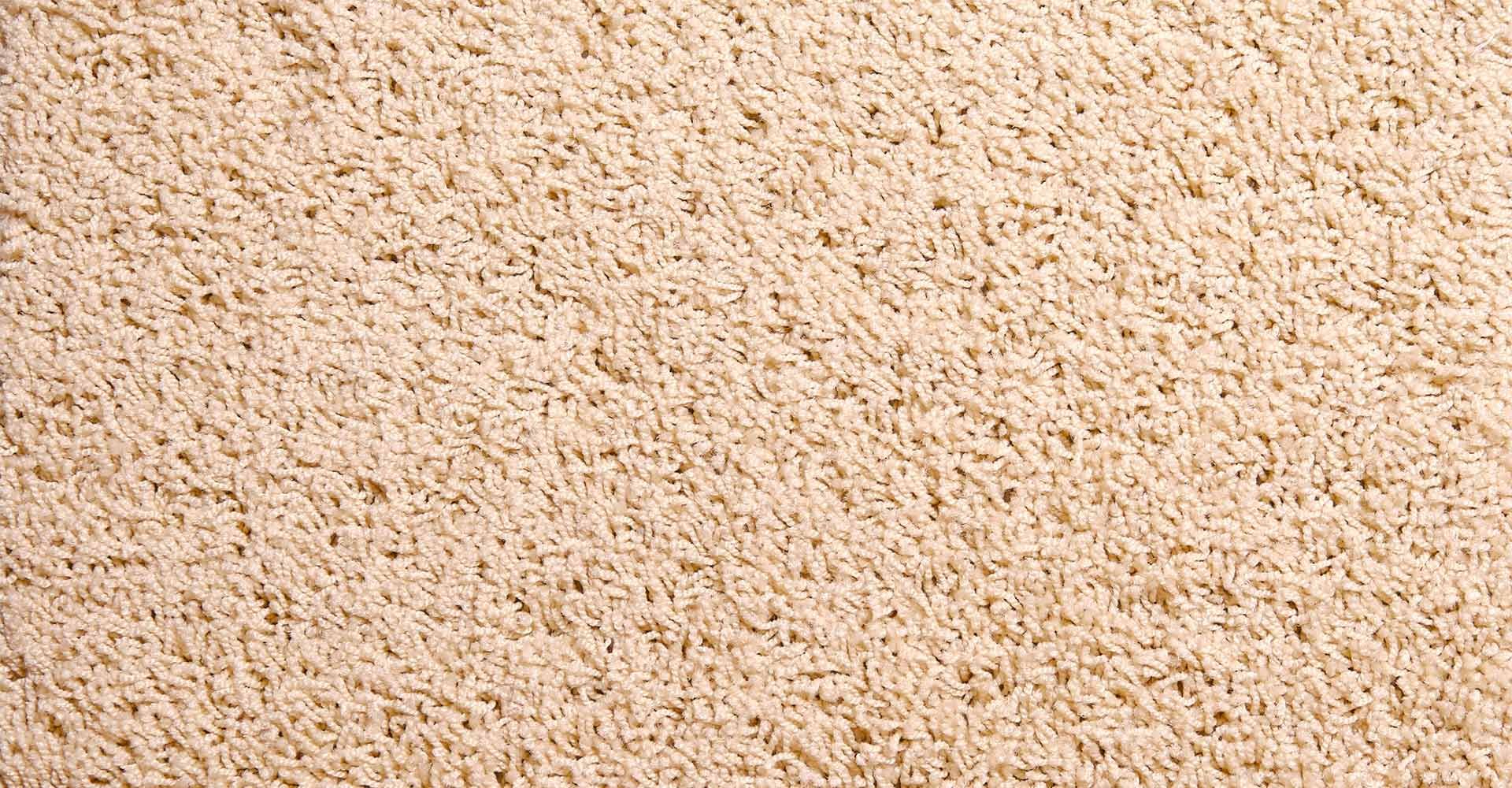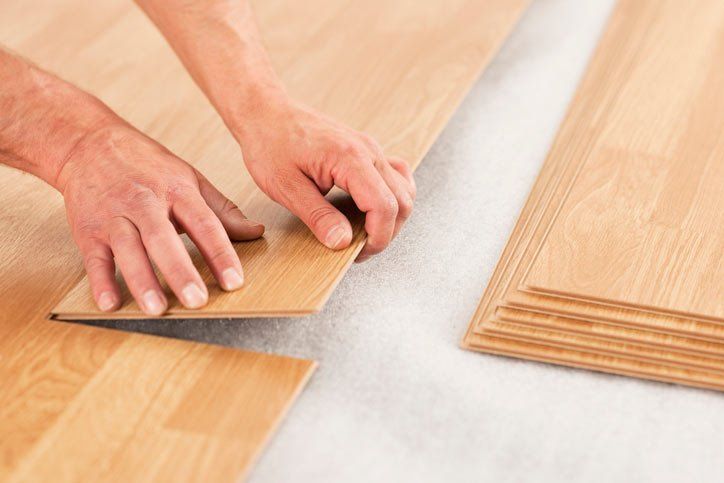Flooring Blogs For Adelaide: Everything You Need to Know
The Ultimate Guide to Choosing the Best Flooring in Adelaide: Everything You Need to Know
Overview of Flooring Options Available in Adelaide

Flooring Adelaide - Choosing the right flooring for your home or business in Adelaide is an essential decision that can impact the aesthetics, functionality, and value of your property. From traditional hardwood to modern vinyl and eco-friendly cork, there are numerous options available to suit different styles, budgets, and needs. This ultimate guide will walk you through everything you need to know to make an informed choice, including the pros and cons of various flooring materials, cost considerations, and maintenance tips. We'll also help you find one of the best flooring suppliers and Installers in Adelaide like us at Modern Floors. We are one of Adelaide’s leading flooring showrooms, offering a wide selection of high-quality flooring options and expert advice you can trust!
For Information About How The Flooring Process Works, See Our Videos, Advice & Tips
Why Choosing the Right Flooring Matters
The right flooring not only enhances the visual appeal of your space but also contributes to comfort, durability, and ease of maintenance. Whether you are renovating your home, building a new property, or simply looking to upgrade a specific room, selecting the appropriate flooring material is crucial. Factors such as the local climate, foot traffic, and intended use of the space should all play a role in your decision-making process.
Factors to Consider When Choosing Flooring
1.Durability: Consider the expected wear and tear. For high-traffic areas, choose materials known for their resilience.
2.Maintenance: Some flooring options require more upkeep than others. Think about the time and effort you are willing to invest in maintenance.
3.Aesthetic Appeal: The flooring should complement your interior design. Consider colour, texture, and pattern.
4.Cost: Flooring can range from budget-friendly to luxurious. Make sure to factor in both material and installation costs.
5.Climate Suitability: Adelaide’s varying climate can affect certain materials. Choose flooring that can handle both summer heat and cooler winters.
6.Eco-Friendliness: For those concerned about sustainability, options like cork, bamboo, and recycled materials are worth considering.
Understanding Different Flooring Types
Hardwood Flooring Pros and Cons
•Pros: Hardwood flooring is known for its classic beauty and durability. It can last for decades if properly maintained and can be refinished multiple times to restore its original appearance. Hardwood also adds significant value to a home.
•Cons: It is more expensive than many other flooring options and can be susceptible to scratches, dents, and moisture damage. It is not ideal for areas with high humidity or frequent spills.
Best Areas to Use Hardwood Flooring
Hardwood is ideal for living rooms, dining rooms, and bedrooms where it can enhance the aesthetic appeal without being exposed to excessive moisture or wear.
Popular Hardwood Varieties in Adelaide
1.Jarrah: Known for its rich, reddish-brown colour and durability, Jarrah is a popular choice for traditional Adelaide homes.
2.Blackbutt: This native Australian timber offers a beautiful pale brown to cream colour, making it a versatile option for both modern and classic interiors.
3.Tasmanian Oak: A light-coloured hardwood that provides a neutral backdrop, Tasmanian Oak is popular for creating a spacious and airy feel in homes.
Maintenance and Care Tips
• Sweep or vacuum regularly to remove dirt and grit that can cause scratches.
• Use a damp mop with a hardwood-friendly cleaner. Avoid excessive water, as it can damage the wood.
• Place rugs or mats in high-traffic areas to minimise wear and tear.
• Use felt pads under furniture legs to prevent scratches.
Laminate Flooring Pros and Cons
•Pros: Laminate is an affordable alternative to hardwood, offering a similar look with improved scratch resistance. It is easy to install and maintain, making it a popular choice for DIY projects.
•Cons: It is less durable than hardwood and can be damaged by moisture. Once damaged, it cannot be repaired but must be replaced.
Best Areas to Use Laminate Flooring
Laminate works well in living rooms, bedrooms, and home offices where there is moderate foot traffic and minimal exposure to moisture.
Popular Laminate Styles in Adelaide
1.Timber Look: Mimics the appearance of natural wood, available in various shades and grains.
2.Stone Look: Offers the aesthetic of stone flooring without the cold, hard surface.
3.Tile Look: Perfect for those who want the look of tiles with the warmth and comfort of laminate.
Maintenance and Care Tips
• Clean spills immediately to prevent water damage.
• Sweep or vacuum regularly to prevent scratches from dirt and debris.
• Use laminate-specific cleaning solutions for best results.
Vinyl Flooring Pros and Cons
•Pros: Vinyl is highly water-resistant, making it ideal for kitchens and bathrooms. It is cost-effective, comfortable underfoot, and available in a wide variety of designs.
•Cons: It can be prone to scratches and dents, and while it is durable, it may not last as long as hardwood or tile.
Best Areas to Use Vinyl Flooring
Vinyl is ideal for kitchens, bathrooms, and laundry rooms due to its water-resistant properties.
Types of Vinyl Flooring
1.Vinyl Planks: Resemble hardwood planks and offer a more upscale look.
2.Vinyl Sheets: Provide a seamless appearance, ideal for moisture-prone areas.
3.Vinyl Tiles: Mimic the look of ceramic tiles but are softer and warmer underfoot.
Maintenance and Care Tips
• Regular sweeping or vacuuming will help keep the floor free of dirt and grit.
• Clean with a damp mop and a mild vinyl floor cleaner. Avoid harsh chemicals and excessive water.
• Use protective pads under furniture to prevent indentations.
Tile Flooring Pros and Cons
•Pros: Tile is extremely durable and resistant to water and stains. It is easy to clean and maintain and comes in a wide range of styles, colours, and textures.
•Cons: Tiles can be cold and hard underfoot, which may not be comfortable for standing or walking for long periods. They can also be slippery when wet.
Best Areas to Use Tile Flooring
Tile is perfect for bathrooms, kitchens, and outdoor areas where durability and water resistance are essential.
Types of Tiles Available in Adelaide
1.Porcelain Tiles: Highly durable and suitable for both indoor and outdoor use.
2.Ceramic Tiles: Versatile and cost-effective, ideal for indoor spaces.
3.Natural Stone Tiles: Such as marble or granite, offer a luxurious look but require more maintenance.
Maintenance and Care Tips
• Clean tiles regularly with a mild detergent and water.
• Use a grout sealer to protect grout lines from stains and moisture.
• Avoid using harsh chemicals that can damage the surface of the tiles.
Carpet Flooring Pros and Cons
•Pros: Carpet provides warmth, comfort, and sound insulation. It is available in a variety of textures, patterns, and colours, allowing for customisation.
•Cons: Carpets can trap allergens, dust, and pet dander, making them less suitable for people with allergies. They can also be difficult to clean, especially if spills occur.
Best Areas to Use Carpet Flooring
Carpet is ideal for bedrooms, living rooms, and home offices where comfort and warmth are a priority.
Popular Carpet Styles in Adelaide
1.Cut Pile: Soft and luxurious, suitable for formal areas.
2.Loop Pile: Durable and resistant to tracking, ideal for high-traffic areas.
3.Textured Pile: A combination of cut and loop piles that creates patterns and hides footprints and dirt.
Maintenance and Care Tips
• Vacuum regularly to remove dirt and prevent it from embedding in the fibers.
• Treat spills immediately to prevent stains from setting in.
• Professional steam cleaning every 12-18 months can help maintain the carpet’s appearance.
Cork Flooring Pros and Cons
•Pros: Cork is a sustainable and renewable resource. It is soft underfoot, provides good insulation, and is resistant to mould and mildew.
•Cons: It can be prone to dents and scratches and is sensitive to water and humidity.
Best Areas to Use Cork Flooring
Cork is best suited for living rooms, bedrooms, and home offices where comfort is a priority.
Maintenance and Care Tips
• Sweep or vacuum regularly to prevent dirt and grit from scratching the surface.
• Use a damp mop with a pH-neutral cleaner designed for cork floors.
• Avoid dragging heavy furniture across the floor to prevent dents.
Bamboo Flooring Pros and Cons
•Pros: Bamboo is an eco-friendly option that is highly durable and stylish. It is resistant to wear and tear and has a unique, contemporary look.
•Cons: It can be sensitive to humidity and moisture, causing it to swell or crack over time.
Best Areas to Use Bamboo Flooring
Bamboo is ideal for living rooms, bedrooms, and dining areas where durability and style are desired.
Maintenance and Care Tips
• Sweep or vacuum regularly to remove dirt and debris.
• Clean with a damp mop and a bamboo floor cleaner.
• Avoid exposing the floor to excessive moisture or direct sunlight.
Choosing the Right Flooring for Different Areas in Your Home
Living Rooms Recommended Flooring Options
•Hardwood: Offers a warm and inviting look, ideal for creating a focal point in the home.
•Laminate: Provides the look of wood at a lower cost and is more resistant to scratches.
•Carpet: Adds comfort and warmth, especially in cooler months.
Factors to Consider
•Traffic: Choose a durable material that can withstand daily foot traffic.
•Comfort: Consider how comfortable the flooring feels underfoot, especially if you spend a lot of time in the living room.
•Aesthetic: The flooring should complement the overall design and colour scheme of the room.
Kitchens Recommended Flooring Options
•Tile: Durable and easy to clean, ideal for handling spills and heavy foot traffic.
•Vinyl: Water-resistant and comfortable underfoot, available in a range of styles.
•Laminate: A cost-effective alternative to tile or hardwood, with many design options.
Factors to Consider
•Water Resistance: The kitchen is prone to spills, so choose a flooring that can handle moisture.
•Durability: Select a material that can withstand heavy use and frequent cleaning.
•Easy Maintenance: Choose flooring that is easy to clean and maintain to keep the kitchen hygienic.
Bathrooms Recommended Flooring Options
•Tile: Offers excellent water resistance and is easy to clean.
•Vinyl: A budget-friendly option that resists moisture and offers a comfortable feel.
Factors to Consider
•Water Resistance: Ensure the flooring can handle constant exposure to moisture.
•Slip Resistance: Choose a textured tile or vinyl to prevent slips and falls.
•Hygiene: Select a material that is easy to clean and does not harbor mould or mildew.
Bedrooms Recommended Flooring Options
•Carpet: Provides warmth and comfort, ideal for creating a cosy atmosphere.
•Hardwood: Offers a classic look and can be enhanced with area rugs.
•Cork: Comfortable and quiet, perfect for a peaceful bedroom environment.
Factors to Consider
•Comfort: Prioritise materials that are soft and warm underfoot.
•Aesthetic: Choose a flooring that complements your bedroom decor and style.
•Insulation: Consider how well the flooring insulates the room, especially during winter.
Outdoor Areas Recommended Flooring Options
•Tile: Durable and weather-resistant, ideal for patios and balconies.
•Stone: Offers a natural look and can withstand outdoor elements.
•Composite Decking: Low-maintenance and slip-resistant, perfect for decks and alfresco areas.
Factors to Consider
•Weather Resistance: Choose materials that can withstand Adelaide’s climate, including heat and rain.
•Durability: Select flooring that is resistant to fading, cracking, and wear from outdoor use.
•Safety: Opt for slip-resistant materials to prevent accidents.
Top Flooring Trends in Adelaide for 2024
Eco-Friendly Flooring Options
Sustainability is a growing trend in Adelaide’s flooring market. Options like cork, bamboo, and recycled materials are becoming increasingly popular as homeowners seek environmentally friendly solutions without compromising on style.
Minimalist and Scandinavian Styles
Light-coloured woods and neutral tones are on-trend, reflecting a preference for clean, minimalist design. This style works well in modern and contemporary homes, creating a spacious and airy feel.
Luxury Vinyl Planks
Luxury vinyl planks offer the aesthetic of hardwood with the benefits of water resistance and durability. This trend is particularly popular for households with children and pets.
Large-Format Tiles
Large-format tiles provide a seamless look and make smaller spaces appear larger. They are perfect for modern homes looking to achieve a sleek, sophisticated aesthetic.
Smart Flooring Solutions
Innovations like heated flooring and acoustic underlays are gaining popularity, offering enhanced comfort and functionality. These smart solutions are perfect for Adelaide homeowners looking to upgrade their living experience.
Understanding the Cost of Flooring in Adelaide
Factors That Affect Flooring Costs
•Material: Different materials have different price points, with options ranging from budget-friendly vinyl to premium hardwood.
•Installation: The complexity of installation can significantly impact costs. Professional installation is recommended for more challenging materials like tiles or hardwood.
•Area Size: Larger areas will naturally incur higher costs due to the amount of material and labour required.
•Subfloor Preparation: If your subfloor needs levelling or repair, this can add to the overall cost.
Cost Breakdown Estimates by Flooring Type In Adelaide
•Hardwood: $80-$120 per square meter, including installation.
•Laminate: $30-$50 per square meter, including installation.
•Vinyl: $25-$50 per square meter, including installation.
•Tile: $50-$100 per square meter, depending on the type and installation complexity.
•Carpet: $30-$80 per square meter, including installation.
•Cork: $50-$100 per square meter, including installation.
•Bamboo: $60-$100 per square meter, including installation.
Tips to Save on Flooring Costs
•Buying in Bulk: Purchase materials in bulk or during sales to save on costs.
•Off-Season Purchases: Consider buying and installing flooring during the off-season when prices may be lower.
•DIY Installation: For simpler materials like laminate or vinyl planks, consider a DIY installation to reduce labour costs.
How to Choose a Reputable Flooring Installer
•Check Reviews: Look for reviews and testimonials from previous customers.
•Verify Licenses: Ensure the installer is licensed and insured to protect your investment.
•Ask for References: Speak with previous clients to get a sense of their experience and the quality of work.
Questions to Ask Before Hiring a Flooring Installer
• What is your experience with this type of flooring?
• Can you provide a detailed quote, including all costs?
• What is the expected timeframe for the project?
• Do you offer a warranty on your work?
Maintenance Tips for Different Types of Flooring
General Maintenance Tips
•Regular Cleaning: Keep floors free of dirt and debris to prevent scratches and damage.
•Avoid Harsh Chemicals: Use gentle, floor-specific cleaners to maintain the material’s finish.
•Furniture Pads: Place pads under furniture legs to prevent scratches and dents.
Seasonal Maintenance in Adelaide
•Managing Humidity: Use a dehumidifier in summer to prevent swelling in wood floors.
•Dealing with Dust and Pollen: Regularly vacuum and clean to manage dust and allergens, especially during spring.
Dealing with Common Flooring Issues
•Scratches: Use a repair kit designed for your flooring type to address minor scratches.
•Water Damage: Immediately dry any spills and consider using a dehumidifier to prevent further damage.
•Fading: Use window treatments or UV-protective coatings to prevent fading from sunlight exposure.
FAQ's About Flooring in Adelaide
What Types of Flooring are Available at Modern Floors?
Hardwood Flooring - offers a timeless elegance and natural beauty that can transform any room.
Vinyl flooring - a versatile and cost-effective option that is ideal for both residential and commercial spaces.
Laminate flooring - provides the look of natural wood or stone at a fraction of the cost.
Carpet Flooring - adds warmth and comfort to living spaces, bedrooms, and offices.
Tile flooring - a durable and stylish option for both indoor and outdoor spaces.
Bamboo flooring - an eco-friendly alternative to traditional hardwood, offering a similar look and feel with added sustainability
Cork flooring - provides a soft, warm surface that is both comfortable and environmentally friendly.
Rubber Flooring - offers quietness without sacrificing comfort. This type of flooring is ideal for healthcare, hospitality, heavy commercial and sports environments.
Marmoleum Flooring
- known for its versatility, sustainability and durability. It combines ecological and economic values that help bring modern and contemporary architecture to life
Why does my choice of flooring Matter?
When choosing the right option for your Adelaide home, you'd need to consider Adelaide's unique climate and lifestyle factors that influence the type of flooring that will work best in your home. With choices ranging from elegant hardwood to durable vinyl, it is crucial to consider not just the appearance but also the practicality of your flooring selection.
What factors do i need to consider when choosing flooring in Adelaide?
Choosing the right flooring involves more than just aesthetics. It is essential to consider factors such as the local climate, household needs, budget, and maintenance requirements.
Here is what you need to keep in mind:
The climate and environmental conditions in Adelaide's local climate can vary significantly, with hot, dry summers and cooler winters. It is essential to choose flooring that can withstand these conditions. For instance, hardwood and bamboo are great for temperature control, while vinyl and tile offer excellent water resistance for humid areas.
Lifestyle and Household Needs - If you have children or pets, you will need durable, easy-to-clean flooring. Vinyl, laminate, and tile are excellent choices for high-traffic areas, while carpet or cork can offer comfort in low-traffic zones like bedrooms.
What is the most durable flooring option for high-traffic areas?
Tiles and hardwood are highly durable for high-traffic areas like hallways and living rooms. Vinyl is also a great choice for durability and water resistance.
Can I install flooring myself, or should I hire a professional?
While DIY installation is possible for certain flooring types like laminate or vinyl planks, it is recommended to hire a professional for materials like hardwood and tiles to ensure a quality finish.
What are the most affordable flooring options in Adelaide?
Vinyl and laminate are generally the most budget-friendly options, offering a good balance of affordability and style.
How often should I refinish my hardwood floors?
Depending on the wear and tear, hardwood floors should be refinished every 7-10 years to maintain their appearance and durability.
Are there flooring options that are safe for allergy sufferers?
Yes, cork and hardwood are hypoallergenic options, as they do not trap allergens like carpet can. Vinyl and tiles are also good choices for reducing allergens in the home.
What is the best flooring for households with pets?
Vinyl and tile are excellent choices for homes with pets as they are scratch-resistant, water-resistant, and easy to clean.
Can I use underfloor heating with all types of flooring?
Underfloor heating is compatible with many types of flooring, including tile, stone, and engineered hardwood. However, it is not suitable for solid hardwood or certain types of vinyl.
What is the best flooring option for rental properties?
Durable and low-maintenance options like laminate and vinyl are ideal for rental properties, as they are easy to clean and replace if needed.
How can I make small rooms look bigger with flooring?
Using lighter-coloured flooring and larger tiles or planks can create the illusion of a larger space. Diagonal patterns and continuous flooring between rooms can also help.
How do I choose the right flooring colour for my home?
Consider the size of the room, natural light, and existing decor. Lighter colours can make a space feel larger, while darker tones add warmth and elegance.
So what's next?
Choosing the right flooring for your home or business in Adelaide is an essential decision that requires careful consideration of various factors, from aesthetics to functionality, practicality and the value of your property. By understanding the different types of flooring available, their benefits and drawbacks, and the specific needs of each area in your home, you can make an informed choice that will enhance the beauty and functionality of your space for years to come. Whether you opt for the timeless elegance of hardwood, the practicality of vinyl, or the eco-friendliness of cork, this guide has provided you with the essential information to make the best decision for your flooring needs in Adelaide. At Modern Floors, we understand the importance of finding the perfect flooring solution tailored to your unique needs. Whether you are renovating a single room or designing a new home, our comprehensive guide provides all the information you need to make an informed decision.
This comprehensive guide provides valuable insights into all aspects of choosing flooring in Adelaide. Contact us at Modern Floors on (08) 8181 0120 for more information today!



